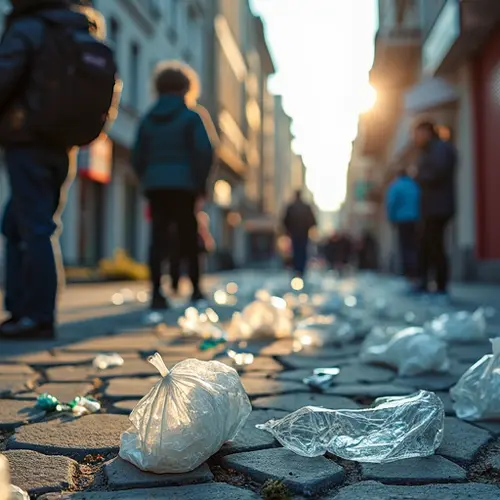
Europe Takes Action Against Fashion Pollution
The European Union has launched a major offensive against fast fashion waste, implementing strict new legislation to combat textile pollution. With clothing consumption having the fourth highest environmental impact in the EU after food, housing and mobility, officials say urgent action is needed.
New Rules for Fashion Industry
The EU Strategy for Sustainable and Circular Textiles requires all garments sold in Europe to be durable, repairable and recyclable. By 2030, fast fashion should be "out of fashion" according to EU plans. Key measures include:
- Extended Producer Responsibility (EPR) schemes making brands pay for waste management
- Digital Product Passports showing environmental impact
- Ban on destroying unsold textiles
- Strict limits on microplastic pollution from synthetic fabrics
- Design requirements for easier recycling
Why This Matters Now
Textiles generate about 10% of global carbon emissions - more than international flights and shipping combined. The average European discards 12kg of clothing annually, with less than 1% recycled into new garments. Synthetic fibers like polyester release microplastics during washing, contaminating waterways.
The legislation follows growing pressure from environmental groups. "This is a game-changer for the industry," said Greenpeace EU circular economy expert Marta Cerdà. "Brands can no longer ignore their pollution."
What Changes to Expect
Starting 2026, clothing brands must:
- Cover costs for collecting and recycling used garments
- Ensure garments contain minimum recycled content
- Provide clear repair instructions
- Eliminate hazardous chemicals
The EU will also restrict textile waste exports to developing countries. New labeling will help consumers identify truly sustainable options and avoid greenwashing.
Industry Response
Major retailers like H&M and Zara have pledged support, though some smaller brands express concerns about compliance costs. The European Apparel Federation warns the rules must be "pragmatic to maintain competitiveness."
Meanwhile, secondhand platforms like Vinted report surging demand. "People want quality garments that last," said CEO Thomas Plantenga. "This legislation accelerates that shift."

 Nederlands
Nederlands English
English Français
Français Deutsch
Deutsch Español
Español Português
Português







